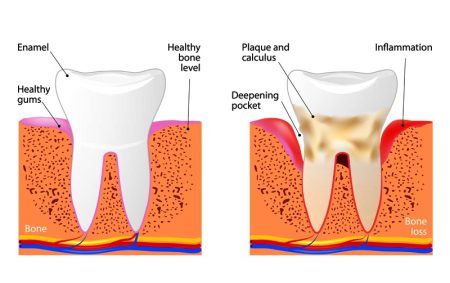What Is Crohn’s Disease in Children (Pediatric Crohn’s Disease)?
- Updated on: Jul 15, 2024
- 4 min Read
By
- Published on Oct 3, 2019


Can children get Crohn’s? What is Crohn’s disease in children (Pediatric Crohn’s Disease)?
Crohn’s disease is one of the inflammatory bowel diseases (IBD) in which one or more parts of a child’s intestinal tract become inflamed. This disease usually affects the lower part of the small intestine called ileum. However, it can also affect other parts of the digestive tract including mouth, esophagus, stomach, appendix and anus. It is a chronic condition recurring at various times over a lifetime but can be managed.
Who is affected by Crohn’s disease? What age can you be diagnosed with Crohn’s disease?
Twenty percent of the cases of Crohn’s disease are of children. Children as young as seven years old are seen to be affected by the disease. It affects boys and girls equally.
What are the symptoms of Chrohn’s in kids or toddlers?
The symptoms mainly depend on the location of the disease in the bowel and its severity. The symptoms are generally variable.
Children may have periods of severe symptoms called Chrohn’s flare-ups followed by periods of no symptoms (remission). The remission period can last for weeks or years. The time and duration of remission period are unknown. Generally, symptoms of Crohn’s disease in children may include:
- Chronic diarrhea
- Rectal bleeding
- Weight loss
- Stunned growth
- Lack of appetite
- Fever
- Abdominal tenderness
- Feeling of mass or fullness in the lower right abdomen
- Fatigue
What are its causes?
There is no definite known cause for Crohn’s disease, but there are many assumptions made by the researchers and doctors. One theory is that the when body’s immune system reacts to a virus or bacteria, it causes swelling in the intestine. It is also said that Crohn’s disease is sometimes caused by emotional distress.
Read about Chrohn’s disease causes.
What are Crohn’s disease risk factors in children?
The main risk factors for Crohn’s disease in children are Gender and family history.
Gender
In childhood, boys are at greater risk of developing Crohn’s disease than girls. However, after puberty, the case is reversed. This indicates that hormones play a major role in Crohn’s disease.
Family history
Family history increases the chances of inflammatory bowel disease (IBD) in children. It is estimated that 16 percent of patients younger than 17 years had someone in their family with Crohn’s disease. This indicates that genetics play a significant role in early-onset of Crohn’s disease.
How is Crohn’s disease in children diagnosed?
A child’s doctor will most likely recommend a combination of tests for diagnosis of the Crohn’s disease, including:
Physical exam and history
The pediatrician may start with gathering information about the medical history of the child and conducting the physical exam.
Blood tests
Blood tests are done to determine anemia (resulting from blood loss) or increased number of white blood cells, which suggest an inflammation is in process.
Stool sample tests
A sample of child’s stool is tested to determine blood loss or an infection (caused by a parasite or bacteria).
Endoscopy
Inside regions of the digestive tract are examined by inserting a small and flexible tube with a light and a camera lens at the end (endoscope). For more accurate and detailed study, tissue samples of the digestive tract are also sometimes taken.
Colonoscopy
Inside parts of the large intestine are examined by using a long, flexible tube similar to an endoscope.
Biopsy
A biopsy is a process of taking a sample of tissue from the lining of the colon for examination in a laboratory.
What are the treatment options for Crohn’s disease in children?
Treatment plans for the affected child may include:
Medication
Drug therapy is the best treatment for Crohn’s disease in children. It can reduce inflammation, control symptoms and allow the body to again absorb nutrients properly. Some of the drugs recommended by doctors are given below:
- Anti-inflammatory drugs – to control the progression of the disease.
- Immune system suppressants – to reduce the inflammation and swelling that causes Crohn’s.
- Antibiotics – to treat related complications, such as abscesses or fistulas.
- Antiulcer/H2 blockers (acid-reducing medications) – to treat related ulcers and irritation.
- Disease-modifying antirheumatic drugs (DMARDs) – to slow or stop the underlying causes of inflammation.
Nutrition support
A child with Crohn’s disease may have a deficiency of vitamins and minerals. The solution to this is to meet a registered dietician (who specializes in working with children and teens with IBD). He can help develop an eating plan that can help control the symptoms of Chrohn’s and restore all the essential vitamins and minerals in the body.
More: Crohn’s Disease Diet: What Food Can You Eat And Not Eat With Crohn’s Disease?
Surgery for Crohn’s disease
Sometimes, a child may not respond to medications. The option for such children is surgery. It is a procedure that removes an affected section of the intestine. The decision is made between the child, his family, child’s gastroenterologist and the surgeon.
The purpose of the surgery is to keep the child healthy and minimize the damage done to the intestine.
What are the preventive measures of Crohn’s disease in children?
- Avoid troublesome foods such as carbohydrates, dairy products and high fiber foods that may aggravate the symptoms.
- Drink plenty of water.
- Give vitamins and calcium supplement to the child after considering with the doctor.
- Keep the child away from stress.
- Always try and encourage the child to lead a healthy life.
What are the complications of Crohn’s disease in children?
The complications of Crohn’s disease are common and related to each other. Various factors that contribute to these complications include inflammation, difficulty gaining weight, and medications. The complications are listed below:
Poor growth and weight gain
When a child has Crohn’s disease, the digestive tract is unable to absorb nutrients. He may not feel like eating very much. This results in a deficiency of protein, vitamins and minerals. This may have a direct impact on child’s growth and weight gain.
Corticosteroids are medications often used to treat the disease also slow down child’s growth. 10 percent of children diagnosed with Crohn’s disease does not grow well.
Delayed puberty
Having an inflammatory bowel disease like Crohn’s can delay puberty especially for girls. This is because of inflammation and difficulty with weight gain.
Inflammation can interfere with hormone regulation and poor weight gain may lead to low body fat which can delay puberty.
Low bone mineral density
Bone mineral density (BMD) is a measure of calcium and other minerals in the bones. Nearly 50 percent of children with Crohn’s disease have low BMD and unfortunately, it does not improve with treatment. This can cause osteoporosis in particularly girls as they grow in age.
More: What Is A Bone Density Test For Osteoporosis (Bone Mineral Density, BMD Test)?












